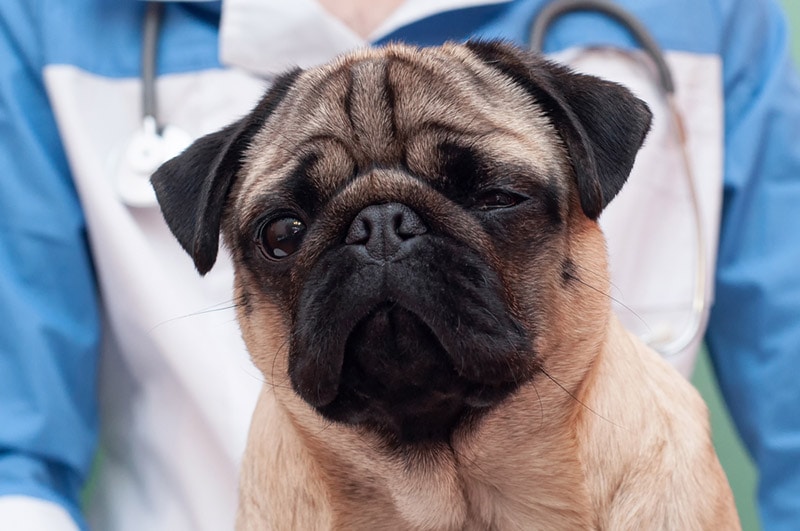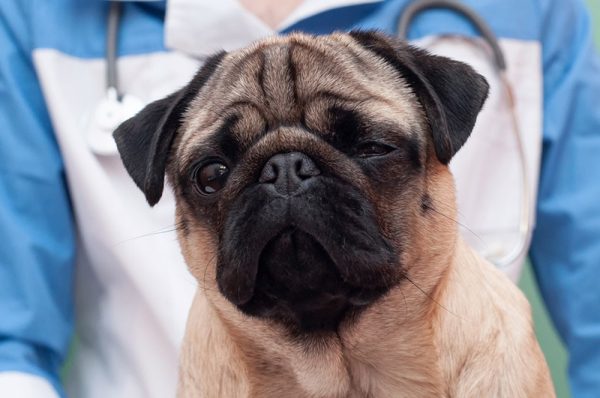If you have just gotten a Pug and it’s letting out all sorts of toxic gasses, you might wonder if this breed is simply notorious for its flatulence problems or if it’s something unique to the individual dog.
Or maybe, you’re not a fan of farts, and you simply want to get a breed that doesn’t often release its vapory stench into your breathing space.
No matter your reason, we will answer the question, how much exactly do Pugs fart? Pugs fart more than the average breed. Let’s explain!
Are Pugs a Particularly Gassy Breed?
You might have heard that Pugs are particularly gassy creatures. But do Pugs fart any more than the average breed? The answer is actually yes! They are more prone to flatulence than others. But what’s the reason?
Gassiness in Pugs Explained
Pugs are brachycephalic, meaning they have shortened muscles. Brachycephalic dogs tend to breathe through their mouths more than their noses, which leads to a lot of air swallowing. The extra air can lead to increased farting as a result.
If your Pug is extra smelly, it could indicate that there is bacteria inside of the gastrointestinal tract causing everything to smell not so much like roses.
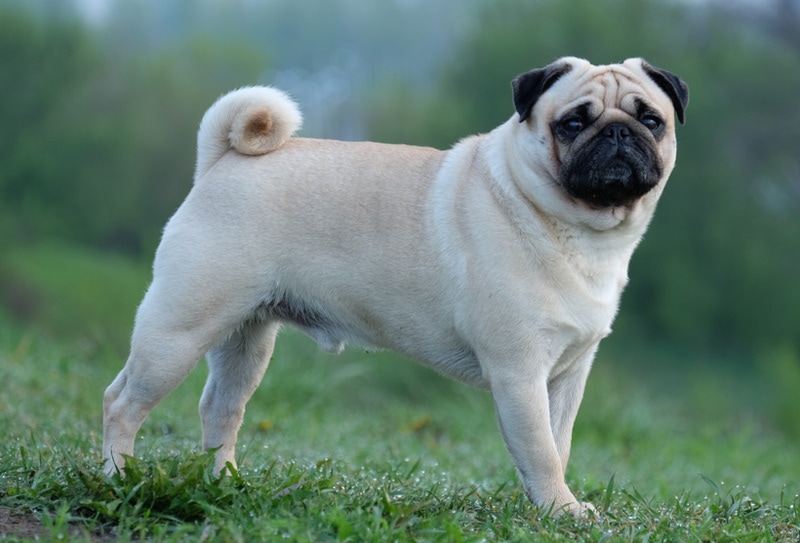
What Causes Gassiness in Dogs?
Gassiness doesn’t just have one cause. If your Pug just has gas, they probably aren’t experiencing an illness per se. However, certain factors can contribute to your Pug’s noxious fumes.
However, if this gas is accompanied by new symptoms that you haven’t noticed before, it might be time to get them to the vet for a little check-up. Since gassiness can accompany so many other symptoms, here is a breakdown of potential accompanying causes.
1. Human Foods
If you’re feeding your Pug lots of table scraps, it can definitely increase the amount of gas. Human foods are unsuitable for our canine friends and can wreak havoc on their gastrointestinal systems. So if you have been giving your Pug a few extra snacks from the dinner table, you might want to hold off for a while.
- Smelly feces
- Diarrhea
- Constipation
- Vomiting
- Gastrointestinal upset
Since human foods can cause a wide array of issues for your dog that go far beyond flatulence, we have to recommend that you keep your goodies out of their reach.
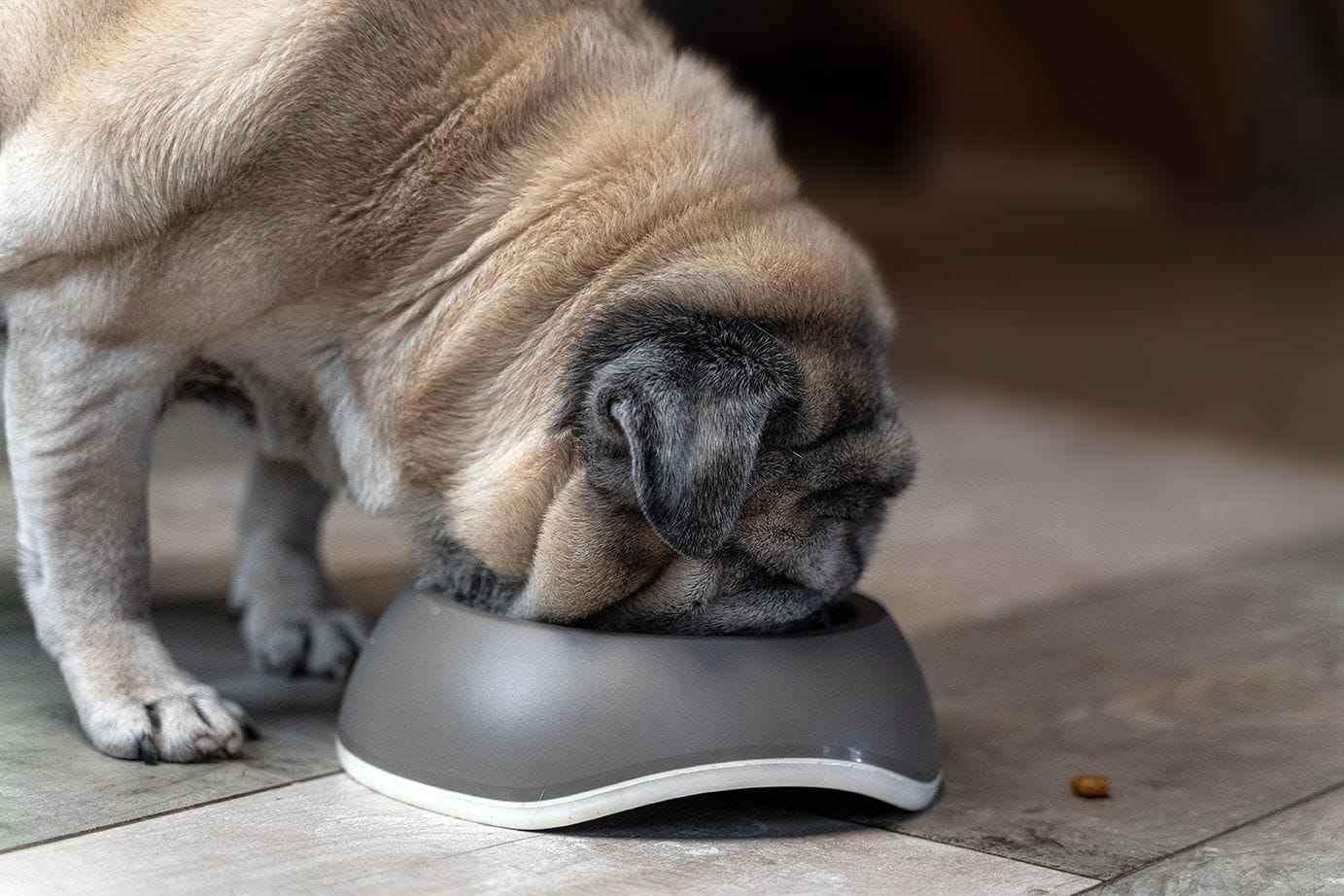
2. Dietary Sensitivities
If your Pug is experiencing dietary sensitivity, it can cause a whirlwind of systems in their gastrointestinal system and otherwise. Your Pug could have food intolerances or food allergies triggered by certain ingredients in their diet.
- Poor coat quality
- Skin irritation
- Recurring yeast infections
- Inflamed skin
- Hair loss
- Itching
- Coughing
- Wheezing
- Sneezing
- Poor growth
Allergies might be a little hard to pin down sometimes, but with enough perseverance, you and your vet should be able to figure out your dog’s issues to get them on the right track. This might involve specialized diets or environmental changes. Sometimes it might require medication.
3. IBS
Irritable bowel syndrome is an intestinal problem you might have heard of, even for people. This disorder irritates the bowels, causing uncontrollable bowel movements, flatulence, and a few other signs and symptoms.
- Uncontrolled diarrhea
- Constipation
- Bloating
- Abdominal pain
- Vomiting
If you suspect your dog could have IBS, you will need an official diagnosis from your veterinarian.
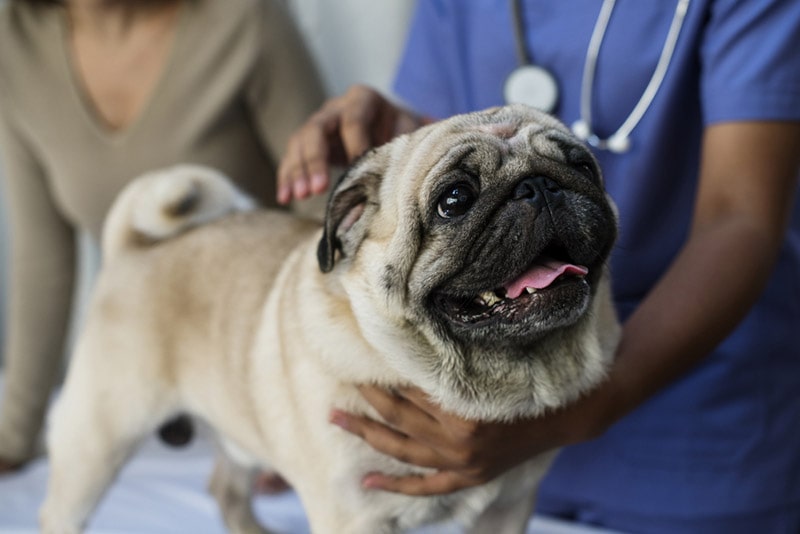
4. Intestinal Parasites
Getting your Pug treated for intestinal parasites is something that’s pretty commonplace. After all, you likely keep up on your preventatives. However, if some time has lapsed, parasite exposure can still happen, and your dog can be infected.
- Diarrhea
- Scooting
- Vomiting
- Distended abdomen
- Weight loss
- Decreased activity
- Dull coat
So, if you have missed a treatment or two, they might be suffering from intestinal parasites. Your vet can quickly test for intestinal parasites and treat them accordingly.
Remember: Consult a Vet
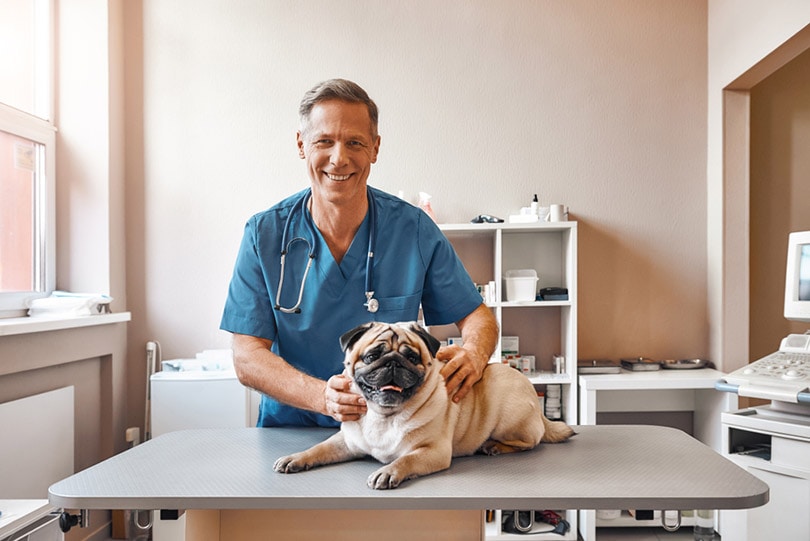
If you notice that your Pug is experiencing any discomfort or extra flatulence and seems unprovoked, get them to your veterinarian. This is especially true if other symptoms like diarrhea, vomiting, or other gastrointestinal issues accompany it.
It could be something as simple as eating a bad piece of garbage or developing a food sensitivity of some kind. No matter what it is, you’ll want to get to the bottom of it, and your vet can help you firsthand.
How to Reduce Gassiness In Pugs
It might be difficult to reduce gassiness in Pugs ultimately. Often, it helps to switch to dog food that is easy to digest, especially if your Pug’s farts are particularly smelly. Also, wet food sometimes has cheap fillers like grain and cellulose from beet pulp, which can lead to bad bacteria in the colon.
Suppose there’s no underlying reason why your Pug is experiencing extra flatulence these days. Indeed, dietary changes could influence the smelliness of your Pug’s bottom half. In that case, it might just be something you’ll have to deal with.
However, some dogs are just more gifted with the production of gasses than others.
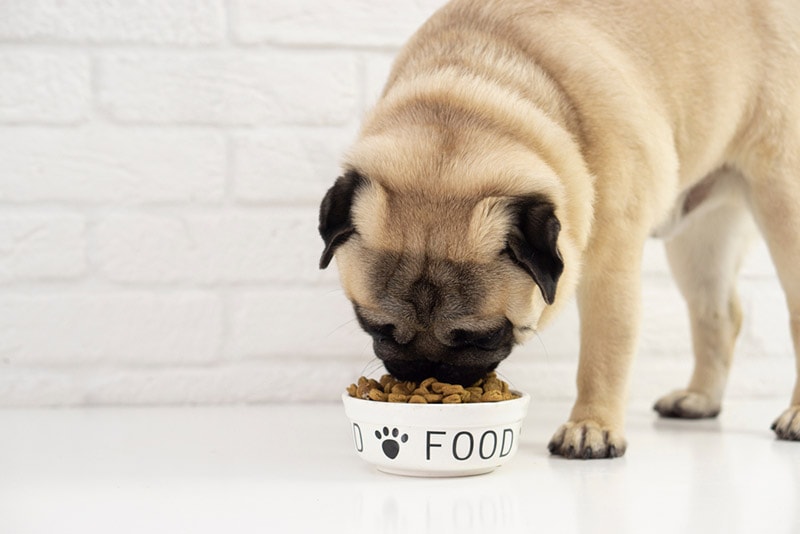
Conclusion
So, your Pug is a little gassier than the rest. This is most likely just a perk of the breed and nothing too serious. However, remember that very smelly gas can indicate changes might need to happen in the diet, so be willing to discuss that with your vet. Also, flatulence can signal potential health issues, especially if other, more severe symptoms accompany it.
Do not hesitate to seek veterinary help if you think something else is happening. However, if you just know you have a gassy boy or girl on your hands, it might be something you just have to live with.
Featured Image Credit: Yekatseryna Netuk, Shutterstock

